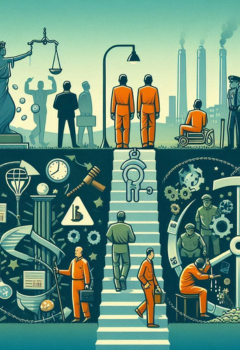THE TRANSITION FROM TRADITIONAL CRIMINAL POLICY TOWARDS A PUBLIC POLICY APPROACH
DOI:
https://doi.org/10.5377/lrd.v45i1.19395Keywords:
Public Policies, Criminal Policy, Human RightsAbstract
Like any public policy adopted as a solution to a problem identified by societies as relevant, criminal policy is nothing more than a dynamic activity of the State that expresses certain political ideas in force at each time to control the criminal phenomenon, which is why it is an error. intend to adopt them as immovable dogmatic paradigms since the social, technological and economic events that occur over time make them obsolete and ineffective, emerging new approaches to criminal policy that begin new cycles of criminal control over time.
The abuse of the punitive power of the State against citizens is the main problem that the various conceptions of criminal policy have faced over time. The ineffectiveness of combating crime and its principles are the main problems that the traditional criminal policy model has faced over time.
The purposes of this research are to describe the background of traditional criminal policy, its principles and the factors that explain its current decline, as well as to describe the impact of multidisciplinarity and the theory of public policies on criminal policy as a new cycle that faces epistemological problems.
Downloads

Downloads
Published
How to Cite
Issue
Section
License
Copyright (c) 2024 La Revista de Derecho

This work is licensed under a Creative Commons Attribution-NonCommercial 4.0 International License.




